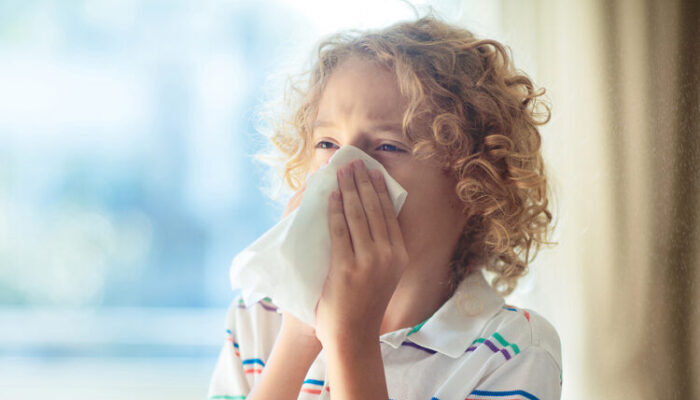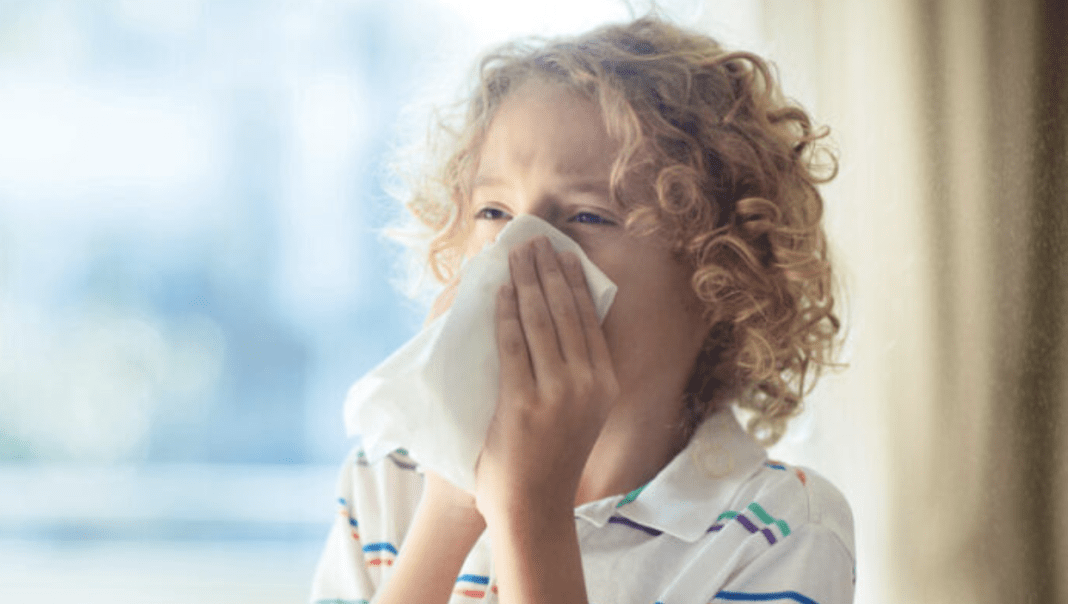Who knew that allergies could affect on children’s behavior??
According to the Centers for Disease Control, Nearly 1 in 3 U.S. adults and more than 1 in 4 U.S. children reported having a seasonal allergy, eczema, or food allergy in 2021. Seasonal and food allergies are more than uncomfortable for children; they can affect their behavior and school performance.
Here are the most common allergies children suffer, how they impact their behavior, and what you can do about them.
 Common Children’s Allergies
Common Children’s Allergies
People suffer from a variety of allergies, but according to C.H.O.P. (Children’s Hospital of Philadelphia), the most common among children are:
Pet Allergies
Most people love animals, especially their pets, which they see as part of the family. However, many people, including children, have severe allergic reactions to pet dander. Like the other allergies on our list, pet dander causes sneezing, runny noses, itchy and watery eyes, coughing, and difficulty breathing. Even with regular vacuuming, pet dander can affect kids.
Dust Mites
Dust mites are tiny bugs that commonly live in house dust and often cause an allergic reaction in people who are sensitive to them. Dust mites are typically found in mattresses and pillows, carpets, clothes, stuffed toys, and bedding.
Dust mite allergies are allergic rhinitis, also known as hay fever, characterized by sneezing, runny nose, itchy eyes, and nasal congestion. In some cases, people with dust mite allergies may experience asthma signs, such as wheezing and difficulty breathing.
Mold
Mold is a fungus that releases airborne spores. Mold fungi thrive in moist, warm environments and are common in households, especially in the bathroom or basement. If children inhale mold spores, their undeveloped immune systems react, causing stuffy noses, sneezing, watery eyes, coughing, and flu-like symptoms.
Allergies Affect on Behavior
Because so many children suffer from allergies, it’s easy to write them off as a normal part of life. However, these allergic reactions can cause children to struggle with maintaining their behavior and school performance. When children suffer from allergic reactions like coughing, sneezing, itching, sinus pressure, and difficulty breathing, they can’t concentrate on their schoolwork and become agitated, making it more difficult to control their behavior.
Because many allergies go undiagnosed, it’s easy for teachers or parents to attribute a child’s behavior problems or inattentiveness to a child being unruly, difficult to control, or suffering from a learning disorder.
According to an article published by UCLA Health, Dr. Maria Garcia-Lloret, a pediatric allergist at the UCLA Mattel Children’s Hospital, With kids, especially young kids, it can be challenging for parents to know what’s going on with their health. Young kids can’t explain themselves with the same language adults might use to describe their symptoms.
To make the situation worse, when children enter a schoolroom, it’s more difficult to control their environment and exposure to things that can exacerbate their allergic reactions, like food, cleanliness, and contact with other children. Imagine how difficult it is for a child suffering from allergies to concentrate during an entire school day, and it’s easy to see how their education can suffer. Moreover, if the symptoms become severe, children may end up missing significant school time, putting them further behind.
Detecting Children’s Allergies
Many allergies in children go undetected and untreated. However, if you’re a parent or teacher, here are a few things to watch for.
- Skin rashes like eczema
- Difficulty breathing
- Persistent coughing, sneezing, sniffling, or runny nose
- Upset stomach
It’s essential for parents and educators to teach kids about these allergic reactions, so they can communicate effectively with their caregivers and get proper treatment. Teach your child that an occasional sniffle or cough is normal but sniffling or coughing all day is probably an allergy that requires a doctor’s care.
Parents and teachers who suspect a child may be suffering from allergies can keep track of the symptoms and when they occur, which can help doctors diagnose the problem more quickly and recommend an appropriate treatment.
When Your Child is Diagnosed with Allergies
Once your child has been diagnosed with allergies, it’s essential to develop a plan to help them deal with them at home and school. This includes:
Avoid Triggers
Identify and avoid allergens that trigger the child’s symptoms.
Take Medication
Ensure that the child has access to any necessary medications, like antihistamines or an epinephrine auto-injector.
Have an Emergency Plan
Create an emergency plan in case of a severe allergic reaction and ensure that all caregivers know how to follow it.
Speak With Your School
Once you know your child has an allergy and the triggers, it’s crucial to let the child’s school know so teachers can monitor the child’s health and deal with allergic flare-ups to make it easier for the child to focus on their schoolwork and maintain proper behavior.

















